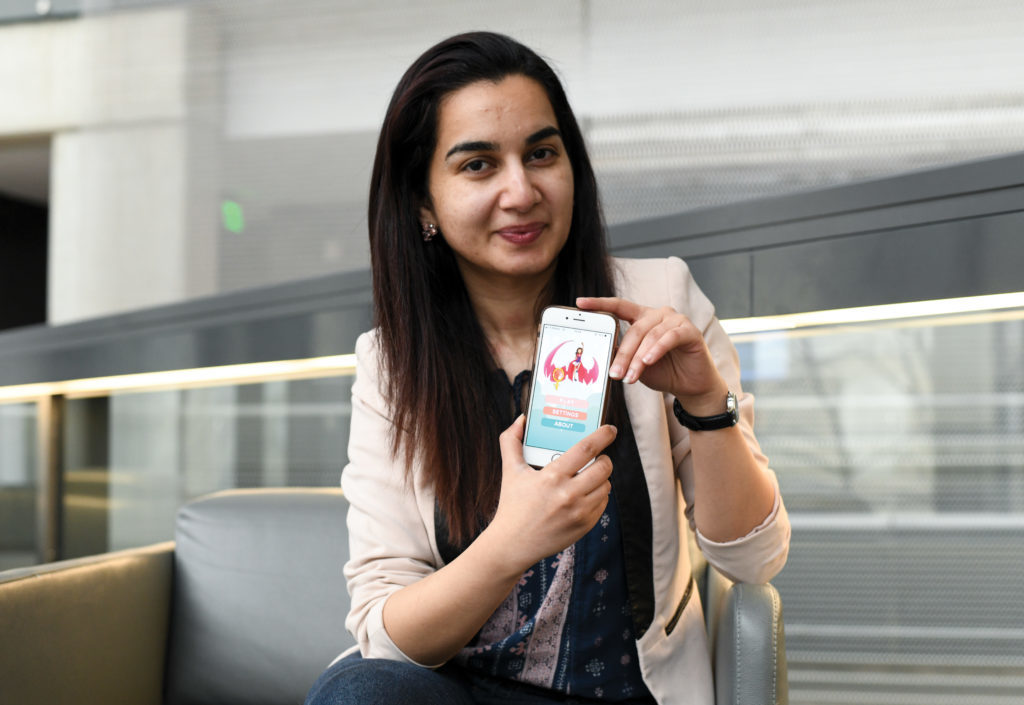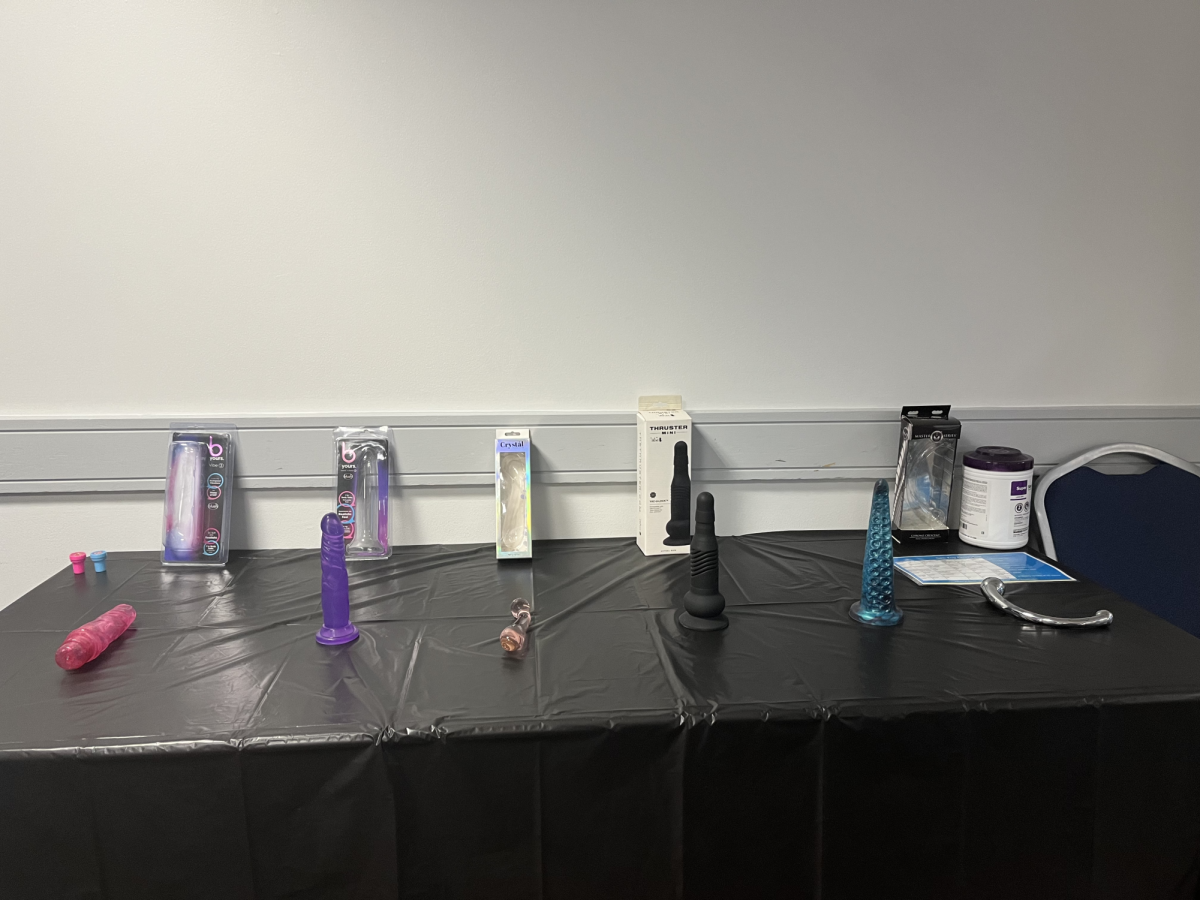Alumna Mariam Adil was sitting in a graduate development economics class in 2013 when she found herself zoning out of the lecture. But it turned out to be a productive daydream.
The classroom discussion centered around social issues in Kenya, and Adil’s pondering launched an idea for a solution that is now used in smart phones across the globe: video games.
Adil is the founder of GRID, Gaming Revolution for Inspiring Development, a social venture that creates low-cost mobile games that are played by people around the world to change stereotypes and serve as educational resources. Adil has released four games since she came up with the idea five years ago and now has five more games under development.
“When I was going to school, I realized that games can be used to train students and international development professionals that work in the field,” Adil said.
Using low-cost mobile games, Adil hopes to reach the “bottom billion” of the population that lives in poverty, particularly in areas like Sub-Saharan Africa and South Asia. Adil’s games are free on the App Store for both iPhone and Android users. Two of the most popular are MoHiM and StereoWiped.
MoHiM is an app that aims to erase the stigma attached to periods and is currently in the hands of thousands of young girls in South Asia and Sub-Saharan Africa. Adil, who grew up in Pakistan, said many young girls in the country are forced to sleep outside of their homes in a “menstrual hut” when they are on their period, often feeling ashamed to even discuss the topic.
In the game, players maneuver a pair of underwear to catch pads while avoiding other falling objects that aren’t related to menstrual flow. Depending on the number of pads caught, the game rewards the player with a trivia question related to common menstrual myths, like “PMS is not real.” Through the game, Adil educates the public about women’s health and also normalizes the issue among girls.
Adil worked with UNICEF Pakistan to spread the game through workshops with students where the group provides information on the topic and encourages attendees to download the game.
Mobile phones have become cheap, even in extremely poor countries, so there is an opportunity to leverage the time people are spending on their phones to raise awareness about different issues, Adil said. Smartphones can cost as low as $20 in some countries, even in those lacking proper sanitation.
“We are looking at a world where people have mobile phones, even if they don’t have toilets,” Adil said.
StereoWiped, which is a matching game that educates young people while they flip tiles to pair up stereotypes, was downloaded by 500 people in its first month of launch last year. For each correctly matched stereotype, the game “wipes” the stereotype. For example, if the player matches “I am a girl” with “I like pink,” the player is informed that two out of three girls actually prefer blue over pink.
“Addressing social issues should not be something that is boring,” she said. “Solving serious problems can be fun. And that’s something I want to do.”
Before graduating with a master’s degree in international development studies in 2015, Adil worked with the Clinton Global Initiative to kickstart her project in 2013 and won three awards for the idea at GW, including “Best Social Venture” prize at Business Plan Competition, the Knapp Fellowship for Entrepreneurial Service-Learning and the Elliott School of International Affairs’ Wilbur J. Carr Prize.
“Being at school gives you that comfortable room to fail and get up and be okay with it,” she said.
As Adil continues pursuing GRID on the side, she works full time as an education specialist at the World Bank.
Adil’s two other games are Gumbers, which is intended to make learning math fun, and Randomania, which takes policy makers through scenarios that could happen as a result of their decisions. The game has been played by more than 300 policymakers in workshops with the World Bank.
General video games can range from $100,000 to $500,000 to create, while popular games like Grand Theft Auto or Call of Duty can cost millions, she said. Adil lowers the cost of development by tapping on the tech talent available in Pakistan. As a non-profit, the revenue is reinvested in the company.
Adil is currently working with George Mason University on a new game that educates users on endometriosis, a painful disorder when the lining of the uterus grows on the outside, and their target audience is women in the United States. Adil said she is also working on games related to climate change, student loans, financial literacy and youth employment.
“I want to have many, many games, solve several different problems and really become a pioneer in the use of games to inspire behavior change and to solve problems not only in the West but around the world,” she said.





